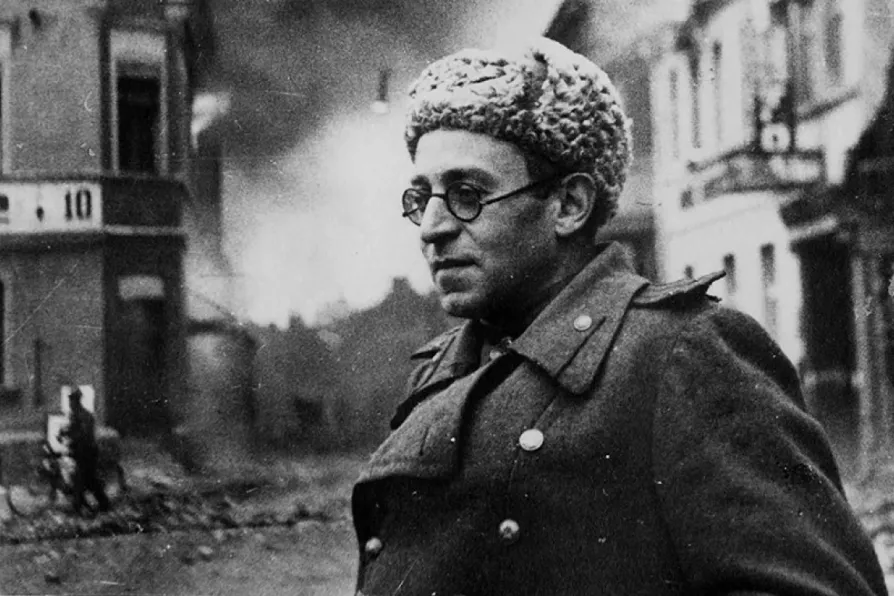RITA DI SANTO draws attention to a new film that features Ken Loach and Jeremy Corbyn, and their personal experience of media misrepresentation

 Bearing witness: Vasily Grossman in Stalingrad
[Waralbum.ru]
Bearing witness: Vasily Grossman in Stalingrad
[Waralbum.ru]
Stalingrad
by Vasily Grossman
(Harvill Secker, £25)
THESE days, superlatives can be overused, resulting in truly great achievements being devalued.
Yet no-one can doubt that Vasily Grossman’s Life and Fate deserves the highest accolade. So too with its prequel Stalingrad, now published for the first time in English.
There is evidence to suggest that this great Soviet writer intended the two works to be one monumental statement of humanity’s suffering and surviving the cataclysm of the second world war.

GORDON PARSONS steps warily through the pessimistic world view of an influential US conservative

The obfuscation of Nazism’s capitalist roots has seen imperialism redeploy fascism again and again — from the killing fields of Guatemala to the war in Ukraine, writes PAWEL WARGAN

The pivotal role of the Red Army and sacrifices of the Russian people in the defeat of Nazi Germany must never be forgotten, writes DR DYLAN MURPHY











